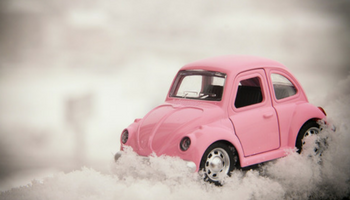Driving in icy conditions is a must for a select few. If you are a nurse or doctor at a hospital, a police officer, or a first responder, the icy roads mean more patients and more calls. Specifically, officers and first responders have been trained to drive in these conditions, but even they are not immune from accidents.If you don't need to drive when winter weather hits, stay home and stay safe.

But if you must drive to your mom's house to check on her, or to pick your children up early from school, we've got a few tips to help you navigate the roads.
Don't do these things on icy roads
Don't: Don't go out if you don't have to. Put some soup on the stove, turn on the TV, and cozy up for the night. When you attempt to go out, you put more than yourself in danger. You put other drivers at risk too.
Don't: Don't drive too fast. With icy roads, remember to slow down to a manageable speed. If you think it's just a little snow covering the road, be on alert because there might be ice lurking underneath the snow.
Don't: Don't overestimate your ability to drive in winter weather. We live in the south and rarely see horrific winter weather. One of the biggest mistakes is drivers who THINK they can drive in the ice and snow, but only get to showcase this ability once a year!
Don't: Don't take the same route. You may need to take an alternate route to work if your normal route has hills or bridges - they are the most dangerous to drive on.
Don't: Don't automatically stop to help a driver who has slid off the road. Although noble, you stopping on the side of the road could cause MORE accidents to occur, including damage to your own car. Call the police or a first responder if the accident victims need immediate medical attention.
Protect yourself in winter weather
We're bound to experience more snow and ice this winter. In times of bad weather, be careful. If you don't need to be out on the roads, stay home. But if you must, here are a few tips of what you can do to protect yourself.
-
Watch and listen to the weather on TV, radio, and the web.
-
Tell someone where you are going.
-
Wear your seat belt.
-
Turn into a slide if you feel your vehicle sliding.
-
Go easy on your brakes.
-
Be prepared. Make sure you have a basic survival kit in your car with water, food, blankets, a change of clothes, flashlight, and other survival necessities.
We hope Kentucky and Tennessee do not have to deal with more severe winter weather this year, but you can easily refer back to our list of do's and don'ts to protect yourself if so.
